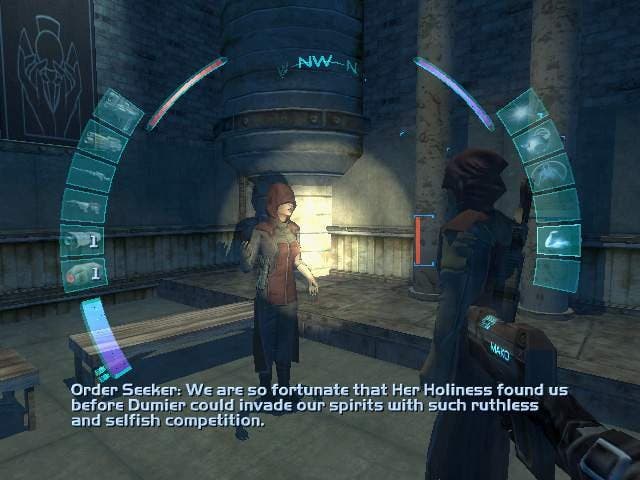Retrospective: Deus Ex: Invisible War
The black sheep of cyberpunk conspiracy thrillers.
As a hormonal and tone-deaf teen I went to see Megadeth live. Despite my unfathomable love for speed metal with Sylvester the Cat-style vocals, their support act Pantera stole the show. I could only pity Megadeth for having to follow Pantera's aural sledgehammer of a performance and I feel the exact same kind of pity for Deus Ex: Invisible War - for it had the unfortunate task of following up a game that would come to be seen as a classic at a time when the technology or budget couldn't match the team's vision.
By now you've probably read or heard all about the first Deus Ex countless times in the build up to the release of Human Revolution. How it's a masterpiece, how it changed gaming, how Human Revolution has a massive legacy to live up and how Eidos Montreal's game better not be another Invisible War.
These days it seems that no one has anything good to say about the black sheep of the Deus Ex family. The mention of its name brings back old wounds for those who worked on it. Human Revolution's developers talked of the 2003 sequel as "a cautionary tale", a what-not-to-do lesson for their reboot of the franchise. Every mention of it on discussion forum involves sage nodding of heads and plenty of backslapping chat about just how dreadfully disappointing it was.
And they're right. I'm not going to argue that Invisible War is a better game than Deus Ex. That kind of talk would only end with me being carted off in a straitjacket. But despite its many mistakes, Invisible War is nowhere near as bad as its reputation suggests. In fact, in a few ways it's actually better than the original (and now I think might be the time to install that flame-retardant biomod).
For a start it's a better shooter than Deus Ex. For a series that prides itself on player agency the tricky gun play of the first game nudged people towards creeping around rather than allowing them to choose between being a sneak or acting like RoboCop.
Then there's the universal ammo concept. No more messing around rearranging ammo in your inventory like an obsessive compulsive - just one clip to rule them all.

Sure the execution wasn't spot on as nothing told you how much ammo each weapon would drain, but the basic concept certainly didn't do Mass Effect 2 any harm. There were also some great biomods like the nanobot spy drone that you could use to scout an area before piloting it up a military bot's rear end and letting it dissipate in an EMP blast.
That said, for every decent addition Invisible War screwed up somewhere else. It reduced hacking to waiting for a bar to fill up. Even worse, it then rubbed that in by robbing us of the joy of playing a nosy parker who gets their kicks from reading emails that provide tiny insights into life as a bored office worker from the future. The scale of the areas in the game is another bugbear, each seemingly squashed down to the size of a bedsit to help Invisible War to fit on the Xbox.
But some of the other criticisms levelled at the game are really questions of design preferences, like the controversial decision to remove the mixing and matching of the skills and augmentations that let you mould a JC Denton of your own design in the original. Instead of this freedom, Invisible War gives you a miserly five biomod slots to fill.


